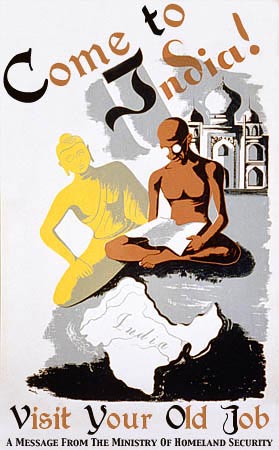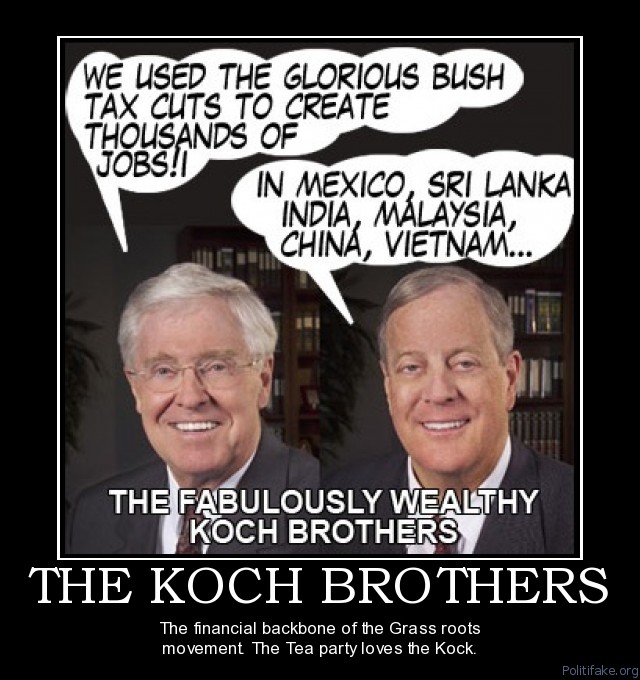signalmankenneth
Verified User
The economy is not creating opportunities at the high end
Before she lost her job last November as a
full-time health department caseworker in
Aurora, Ill., Amy Valle was making $23 an
hour. Now she's paid $10 an hour as a part-
time assistant coordinator in an after-school
program.
"From here on out, it will be a struggle," says
Valle, 32, whose husband lost his $50,000
government job and still is out of work after a
year. "I don't feel like there's any place we can
go to get what we were getting paid."
While the unemployment rate dropped to 9 percent in January, from a two-decade peak of 10.1 percent in October 2009, many of the jobs people are now taking don't match the pay, the hours, or the benefits of the 8.75 million positions that vanished in the recession, according to Paul Ashworth, chief U.S. economist at Capital Economics in Toronto.
This may restrain wage and salary growth, limiting gains in consumer spending, which accounts for 70 percent of the U.S. economy. The good jobs that would trigger a solid boost in spending just don't seem to be there.
"In the last recovery we were adding management jobs at this point, and this time it's disappointing," says Ashworth, who published a report on Jan. 27 about pre- and post-slump employment based on U.S. Labor Dept. data. "The very best jobs, we're still losing those."
Projections from the Bureau of Labor Statistics reinforce his pessimism. While the number of openings for food preparation and serving workers will grow by 394,000 in the decade ending in 2018, the average wage is only $16,430 including tips, based on 2008 data. Meanwhile, the number of posts for financial examiners, who work at financial-services firms to ensure regulatory compliance, will expand by just 11,100. The average pay for examiners is $70,930.
Lowe's, the second-largest U.S. home improvement retailer, typifies the reshuffling of the U.S. workforce. The chain, based in Mooresville, N.C., said on Jan. 25 it is eliminating 1,700 managers responsible for store operations, sales, and administration as profit growth trails that of the larger Home Depot chain. Meanwhile, Lowe's said it will add 8,000 to 10,000 weekend sales positions and is creating a new assistant store manager position.
The trend is troubling for the country's long-term prospects, says Edmund Phelps, who won the Nobel Prize for economics in 2006 and directs the Center on Capitalism and Society at Columbia University in New York. Businesses aren't innovating as much, so companies "just don't seem to require all those relatively high-paid workers they once did," he says.
The health-care industry is one example, the BLS said in a December report on the occupational outlook. As costs continue to rise, "tasks that were previously performed by doctors, nurses, dentists, or other health-care professionals increasingly are being performed by physician assistants, medical assistants, dental hygienists, and physical therapist aides."
Michael Greenstone, a former staff member for the White House Council of Economic Advisers, says it's "premature to make too much of where the particular job creation is occurring," because the "immediate issue is that there are too many people" out of work. "I'm not in favor of ditch-digging, but the first thing is to get more people employed," says Greenstone, an economics professor at the Massachusetts Institute of Technology. "Unemployment is a scourge of society right now, and it has to be the front-and-center issue."
Job hunters are adapting, with 60 percent prepared to settle for a full-time position they don't really want or one they're not qualified for, says Dennis Jacobe, chief economist for Washington-based Gallup, based on a survey he conducted last month.
Ken Niswonger, 51, a machine builder by training, spent five months looking for work after losing his job in October 2009. Unable to find anything in his field, he enrolled in a college computer security program to learn new skills. "I'm hoping I can find something entry-level," he says, adding that he'll have to begin his search for an information technology job before he finishes his program. "I'm well aware I might not get what I used to make," he says. "Who knows? Might get a job at $12 to $14 an hour. That's not even $30,000 a year."
By Joshua Zumbrun and Shobhana Chandra



Before she lost her job last November as a
full-time health department caseworker in
Aurora, Ill., Amy Valle was making $23 an
hour. Now she's paid $10 an hour as a part-
time assistant coordinator in an after-school
program.
"From here on out, it will be a struggle," says
Valle, 32, whose husband lost his $50,000
government job and still is out of work after a
year. "I don't feel like there's any place we can
go to get what we were getting paid."
While the unemployment rate dropped to 9 percent in January, from a two-decade peak of 10.1 percent in October 2009, many of the jobs people are now taking don't match the pay, the hours, or the benefits of the 8.75 million positions that vanished in the recession, according to Paul Ashworth, chief U.S. economist at Capital Economics in Toronto.
This may restrain wage and salary growth, limiting gains in consumer spending, which accounts for 70 percent of the U.S. economy. The good jobs that would trigger a solid boost in spending just don't seem to be there.
"In the last recovery we were adding management jobs at this point, and this time it's disappointing," says Ashworth, who published a report on Jan. 27 about pre- and post-slump employment based on U.S. Labor Dept. data. "The very best jobs, we're still losing those."
Projections from the Bureau of Labor Statistics reinforce his pessimism. While the number of openings for food preparation and serving workers will grow by 394,000 in the decade ending in 2018, the average wage is only $16,430 including tips, based on 2008 data. Meanwhile, the number of posts for financial examiners, who work at financial-services firms to ensure regulatory compliance, will expand by just 11,100. The average pay for examiners is $70,930.
Lowe's, the second-largest U.S. home improvement retailer, typifies the reshuffling of the U.S. workforce. The chain, based in Mooresville, N.C., said on Jan. 25 it is eliminating 1,700 managers responsible for store operations, sales, and administration as profit growth trails that of the larger Home Depot chain. Meanwhile, Lowe's said it will add 8,000 to 10,000 weekend sales positions and is creating a new assistant store manager position.
The trend is troubling for the country's long-term prospects, says Edmund Phelps, who won the Nobel Prize for economics in 2006 and directs the Center on Capitalism and Society at Columbia University in New York. Businesses aren't innovating as much, so companies "just don't seem to require all those relatively high-paid workers they once did," he says.
The health-care industry is one example, the BLS said in a December report on the occupational outlook. As costs continue to rise, "tasks that were previously performed by doctors, nurses, dentists, or other health-care professionals increasingly are being performed by physician assistants, medical assistants, dental hygienists, and physical therapist aides."
Michael Greenstone, a former staff member for the White House Council of Economic Advisers, says it's "premature to make too much of where the particular job creation is occurring," because the "immediate issue is that there are too many people" out of work. "I'm not in favor of ditch-digging, but the first thing is to get more people employed," says Greenstone, an economics professor at the Massachusetts Institute of Technology. "Unemployment is a scourge of society right now, and it has to be the front-and-center issue."
Job hunters are adapting, with 60 percent prepared to settle for a full-time position they don't really want or one they're not qualified for, says Dennis Jacobe, chief economist for Washington-based Gallup, based on a survey he conducted last month.
Ken Niswonger, 51, a machine builder by training, spent five months looking for work after losing his job in October 2009. Unable to find anything in his field, he enrolled in a college computer security program to learn new skills. "I'm hoping I can find something entry-level," he says, adding that he'll have to begin his search for an information technology job before he finishes his program. "I'm well aware I might not get what I used to make," he says. "Who knows? Might get a job at $12 to $14 an hour. That's not even $30,000 a year."
By Joshua Zumbrun and Shobhana Chandra





